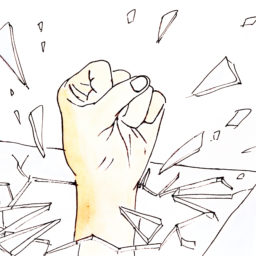There’s no need to feel powerless in the face of such a big issue. Start by creating change where you can.
It’s no secret that the music business has a gender problem. If you read about the business regularly you’ll find articles about the plight of female DJs, music pros having music mansplained to them, or the excellent pieces on the topic by AIM’s Lara Baker about calling out sexism or being a young woman in music.
A few weeks ago, at the Sørveiv conference in Norway, the accomplished music manager and lecturer Sally-Ann Gross led a panel about gender in music, which led to a great audience discussion.
It was suggested by someone, a man if that matters, that perhaps this just needs time to be worked out and that women need more role models.
Bullshit. This has always been an issue — what good is more time?
It’s true that more role models might help, but then you’re placing pushing the responsibility back to women. It’s like saying “it’s your problem, you solve it,” but in fact it’s a problem that we all keep alive. For instance, it’s the status quo which prevents role models from being more visible.
A young woman in the audience bravely spoke up later and gave a very personal account of her experience as a woman in music. She mentioned that she always feels pressure on her, because she’s the only woman in the room. She has to make her contribution count. She felt like she can’t make mistakes, and has to perform way above average to be taken seriously.
I don’t know about you, but I really don’t want people (♂ ♀ ⚲ ⚦ ⚧) around me to ever feel that they can’t make a mistake. Or to feel that constant pressure and not be able to relax.
It may seem hard to understand what you can really do when you’re in a position of privilege. Especially since you don’t want to disempower the people you’re trying to help. But it’s not that hard.
If you’re in a position of privilege, here’s what you can do
Step one: accept that you’re in a position of privilege. Don’t be scared to use that privilege in order to make the world a better place. In fact, consider it your responsibility.
It starts with being part of the majority. In music, that means being a guy. Then there are positions of respect, built up through past achievements or professional seniority, but those don’t matter that much. Just being part of the majority makes it easier for you to stand up for what’s right, than for someone who doesn’t hold a position of privilege.
- Build space so people can actually perform. Don’t gossip. Be someone people can trust. If you have sway in a group, speak out when people treat others unfairly, such as overly skeptical or patronisingly.
- Worry people may not be welcoming to someone new? Communicate your belief and trust in them widely. Take extra time to make sure the person gets integrated into the team.
- Create a culture of listening. Perhaps the problem in music is that it’s very much a business of egos in which many people just run with their assumptions without listening to each other. This causes people to believe that what’s true for them, is true for others.
- When people are dismissive of someone, find out why. If it’s bullshit, challenge them. Don’t let false beliefs go unchecked.
- Never take away someone’s chance to stand up for themselves.
I’ve intentionally removed gender from here, because it can happen to anyone. In building a team, I’ve sometimes made non-obvious choices that I had to defend and make sure that people saw what I saw in someone.
There’s so much you can do. Go have this discussion with women you see speaking out about this. They want to solve a problem, so they’re interested in having this conversation. Email them or have a chat with them after their panel discussions at conferences.
But what we don’t need is more time if that means postponing planting seeds for a better future.
If you see a festival line-up with almost no women, share your disappointment with the organiser and consider not getting a ticket. If you see people unwilling to give someone a chance because of what’s between their legs, address it. If the only way to get rid of their bullshit is to stop working with them, then make a plan and cut them out.
Don’t work with people who aren’t willing to listen to others.
And obviously, if you see anything worse, like sexual harassment, call it out.
I didn’t start working in music to join an old boy’s club. Did you?
